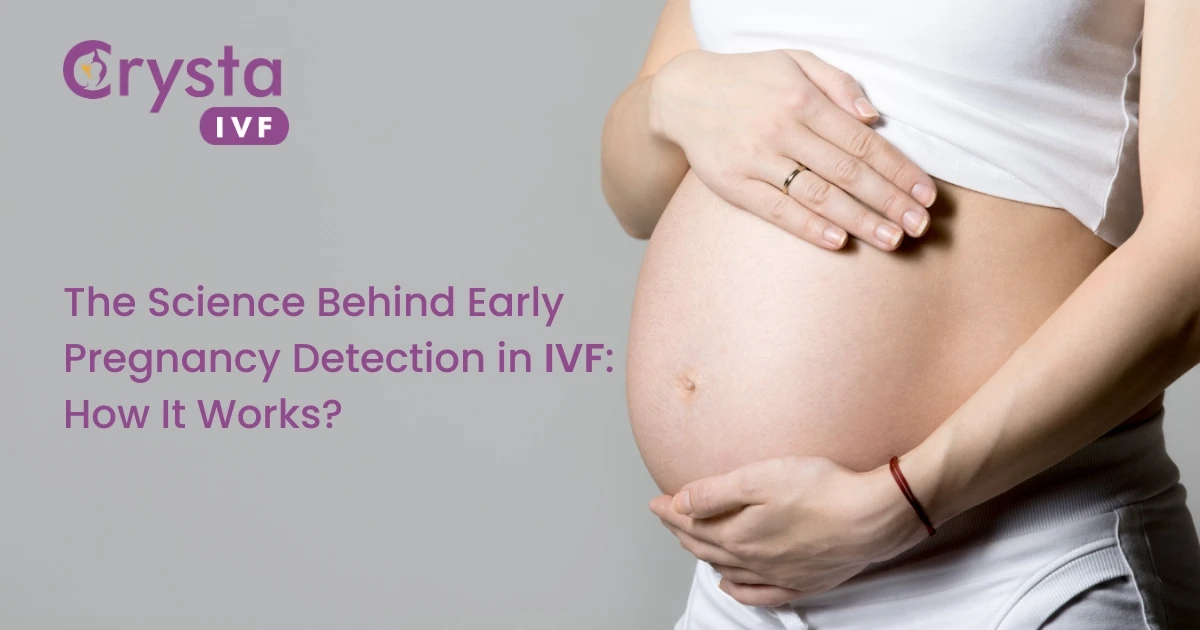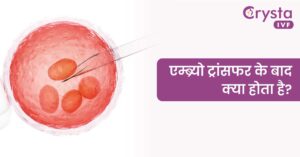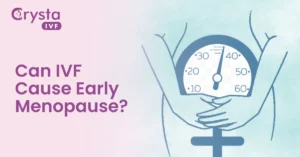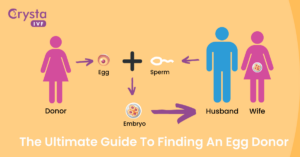
Medically Reviewed By
Dr. Nidhi Sehrawet

Congratulations! You have completed the IVF process and have gone through all the ups and downs, but what is it all about?
Now that the treatment is complete, will you sit down and relax, or are you eager to know what happens after the IVF treatment when the embryo successfully gets implanted into the uterus? And when can you expect positive results?
If all the answers to the questions are yes, it is time to get serious, especially if you are a couple who has recently opted for IVF treatment.
Understanding how to detect early pregnancy after IVF can help manage expectations and alleviate anxiety during the waiting period.
So, in this article, we will explore the factors influencing early pregnancy detection in IVF and provide insights into when you can expect positive results. However, before we continue, let’s comprehend the IVF treatment.
The science behind IVF: How does in vitro fertilization work?
In vitro fertilization (IVF) is a complex series of procedures that helps infertile couples to conceive a child. During this procedure, mature eggs are retrieved from the ovary and fertilized by a sperm in a lab.
After that, the fertilized egg (embryo) gets transferred into the uterus. Usually, one full IVF cycle takes about three weeks, and sometimes it can take a bit longer.
So, if you have already gone through IVF treatment or are planning for it, be responsible for the early pregnancy symptoms and analyze them to decide how early you can expect positive results after IVF treatment.
So before you scroll down, look at how your body reacts after embryo implantation.
What happens before and after embryo implantation?
Your body reacts differently when the implantation occurs. When the egg leaves the ovaries, the corpus luteum (the eggshell retained in the ovary) emits a hormone called progesterone.
Due to this hormone, your uterine line prepares itself to receive a fertilized egg to implant it. If this does not occur, the progesterone level in your body starts to drop, your uterine line breaks, and you start getting your monthly menstrual cycle.
On the other hand, when the implantation is successful, the zygote releases hCG. It not only alerts the females about pregnancy but also the corpus luteum to keep the progesterone production ongoing to strengthen the endometrium and uterus lining.
After this, some women experience early pregnancy symptoms. Let’s read them carefully.

Early pregnancy in IVF symptoms
Every woman trying to become a mother will watch out for post-implantation symptoms. But you should also be aware that all women do not experience these early pregnancy symptoms. Sometimes, women do not feel any of these symptoms, and in some cases, it also gives false alarm to women that they are pregnant. Thus, the most reliable way to determine whether you are pregnant is through a pregnancy test after thoroughly studying early pregnancy symptoms.
- Sore breasts
- Increased body temperature
- Mild cramps
- Light spotting or bleeding
- Delayed or missed periods
- Frequent urge to urinate
However, hearing the good news after the implantation is not as easy as it sounds. Several factors can influence the timing of early pregnancy detection in IVF.
Factors affecting early pregnancy detection in IVF
To make your IVF treatment successful, we have identified the factors that can affect your early pregnancy detection in IVF, such as:
Embryo Development: The rate of embryo development can vary, and implantation may occur sooner or later, depending on the specific embryo. Some embryos implant quickly, while others take longer.
Blastocyst Transfer: Blastocyst transfer refers to the transfer of embryos at a more advanced stage of development (around day 5 or 6). With blastocyst transfer, implantation, and subsequent hormone production may occur earlier, allowing for earlier detection.
Hormone Levels: The sensitivity of pregnancy tests can vary. Blood tests at clinics can detect lower levels of hCG than most home pregnancy tests, increasing the chances of early detection.
Individual Variations: Every woman’s body is unique, and hormone levels can vary from person to person. Some women may have higher hormone levels earlier in pregnancy, enabling earlier detection, while others may take longer.
The above-listed factors are vital to keeping in mind to succeed in IVF treatment, but you should also be aware of when it is the right time to test after implantation bleeding in your early pregnancy phase.
When should you get tested after implantation bleeding?
One can easily compare implantation bleeding to menstrual bleeding. So for your help, we have made a list to distinguish menstrual bleeding from implantation bleeding and to inform you about the duration when you can take the pregnancy test.
- The bleeding after implantation lasts only for a few hours or a day, and the flow is not heavy.
- The implantation will appear pinkish or dark brown in contrast to the bright red color of one’s period blood.
- Period bleeding usually starts after 14 days of ovulation ( in a 28-day menstrual cycle), while implantation bleeding can happen in around 10 days.
You must keep the above-listed pointers in mind to get positive results, but your road to a successful IVF pregnancy doesn’t end here. To make your journey the healthiest one, and you should be informed about what to avoid in early pregnancy. So, sit back, relax, and scroll down a little more.
Things to avoid in early pregnancy in IVF
To keep your IVF pregnancy journey successful, we have curated a list for you of what to avoid in your early pregnancy.
- Avoid smoking cigarettes.
- Quit alcohol
- Avoid raw, uncooked meats and eggs.
- Limit your intake of caffeine.
- Maintain a healthy weight.
- Avoid hot tubs, steam rooms, whirlpools, and saunas.
- Avoid seafood high in mercury, such as mackerel and tilefish.
Now that you have successfully understood the early pregnancy detection in IVF and when you can expect positive results, it is time to reach its conclusion and study expert advice to live a healthy parenthood journey
From the Expert’s Column
Early pregnancy detection after IVF is an essential milestone for couples hoping to conceive. While the waiting period can be emotionally challenging, it’s crucial to exercise patience and trust the timing recommended by the fertility expert.
By understanding the factors influencing early pregnancy detection in IVF and managing expectations, you can navigate this period with a better understanding and a more positive mindset. Remember, a fertility specialist at the Best IVF Centre in Delhi, can be your best resource for guidance and support. Also, you do not have to be stressed about the IVF Cost in Delhi. As India’s leading fertility chain, Crysta IVF ensures every infertile couple can plan for a healthy baby without getting stressed about the IVF cost. So plan your parenthood journey now!




